Save Money and the Planet with 4 Simple Ingredients
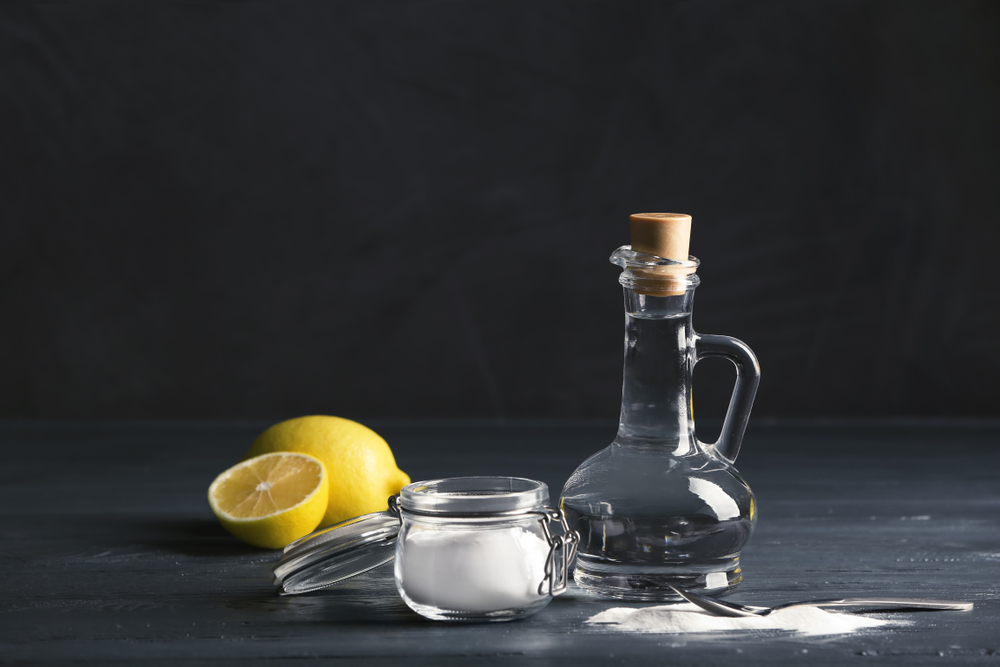
Your kids or Instagram or your own conscience and diminishing bank account are telling you that there must be a better way to clean the house than using expensive, corrosive, dangerous chemicals. Where do you start to make the changes you know you want to make? We consulted with “the hive mind” on social media and received an abundance of excellent suggestions, which we then put to the test in our home laboratory. Here are some of the great ideas you can use to save money while making your home healthier and your carbon footprint a little smaller. Your best friends in the realm of natural cleaning products are baking soda, kosher salt, white vinegar and lemons*.
*If you are living in Israel this Shemitah year, be sure to check with your halachic advisor about which lemons you can use for cleaning products.
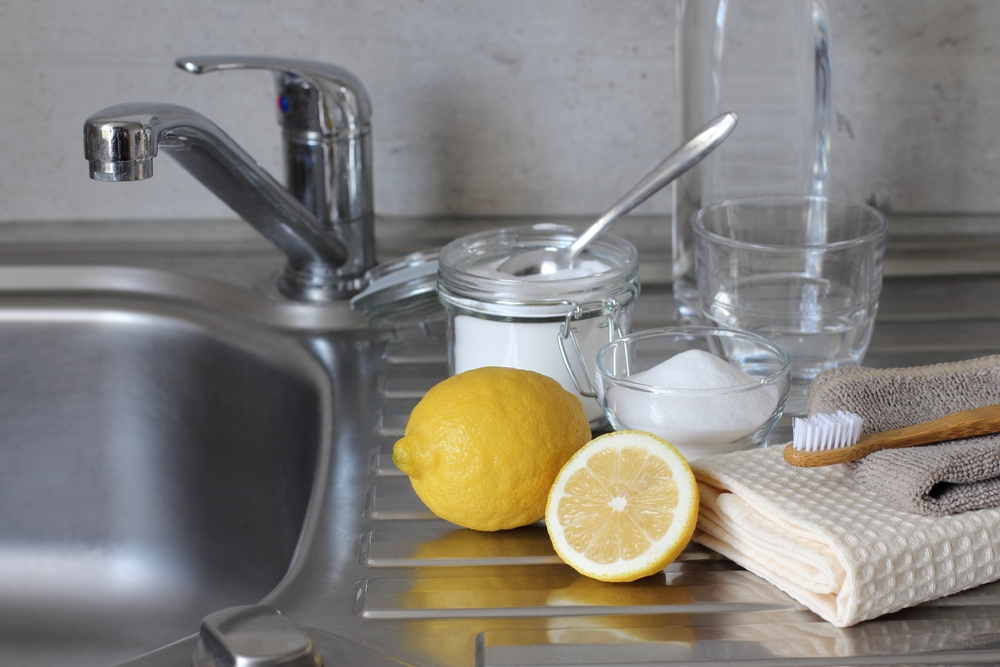
Clean your kitchen sink with baking soda and lemon or vinegar, instead of abrasive cleansers.
Use baking soda and vinegar to clean sinks, or baking soda and lemon. Sprinkle baking soda on the surface of a dampened sink. Let it sit for fifteen minutes. Rub clean with a cloth soaked in white vinegar. Or, cut a lemon in half and, using it like a scrub brush, scrub the sink with the baking soda. Not only does the sink get cleaner and shinier; it also smells fresh.
Clear a slow-draining sink without harsh chemicals.
Use baking soda and vinegar to clean sinks, or baking soda and lemon. Sprinkle baking soda on the surface of a dampened sink. Let it sit for fifteen minutes. Rub clean with a cloth soaked in white vinegar. Or, cut a lemon in half and, using it like a scrub brush, scrub the sink with the baking soda. Not only does the sink get cleaner and shinier; it also smells fresh.
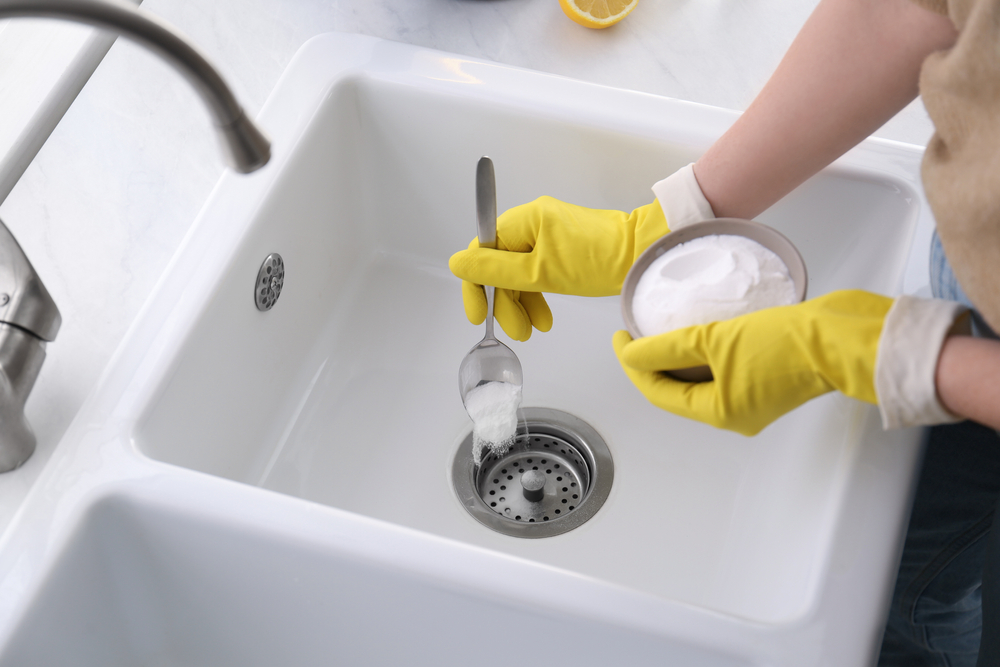
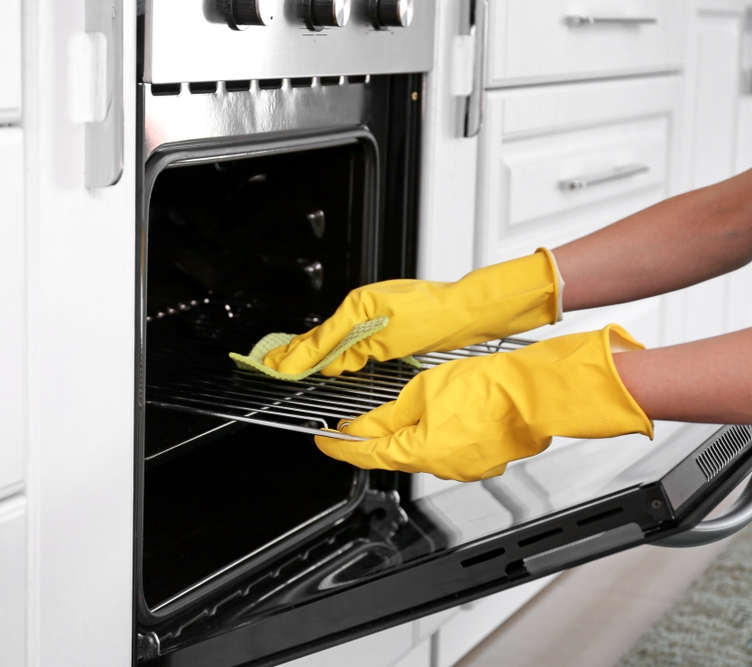
Clean your oven with baking soda and vinegar.
There may not be a way to get that oven as clean as the day you bought it other than by using seriously caustic chemicals. But the tradeoff may not be worth it. Many of us are troubled about having such dangerous products in the house, not to mention breathing in those dangerous fumes. Baking soda and vinegar can come to the rescue, as long as what you want is to reduce the heavy, greasy buildup. Prepare a thick paste of baking soda and water. Apply the mixture to the oven interior and leave on overnight. (Twenty-four hours is even better.) Wipe off with a wet cloth in the morning. Some scrubbing or even a repeat application may be needed, depending on the severity of the buildup. It may even be a good idea to use a rag dipped in white vinegar for stubborn stains, as the vinegar activates the baking soda.
Clean windows, mirrors and stainless steel with water and vinegar.
In a spray bottle, mix one part white vinegar and one part water to make your windows and mirrors shine. This simple blend is great for removing scummy mineral deposits and for cleaning faucets and fixtures. Use it to make your stove top and fridge shine inside and out. It’s even good as a low-level disinfectant (though bleach is a better choice for sanitizing. And speaking of bleach: white vinegar cleans ceiling mold — for those in cold, damp climates — just as well, and you don’t have to worry about it dripping onto your skin).
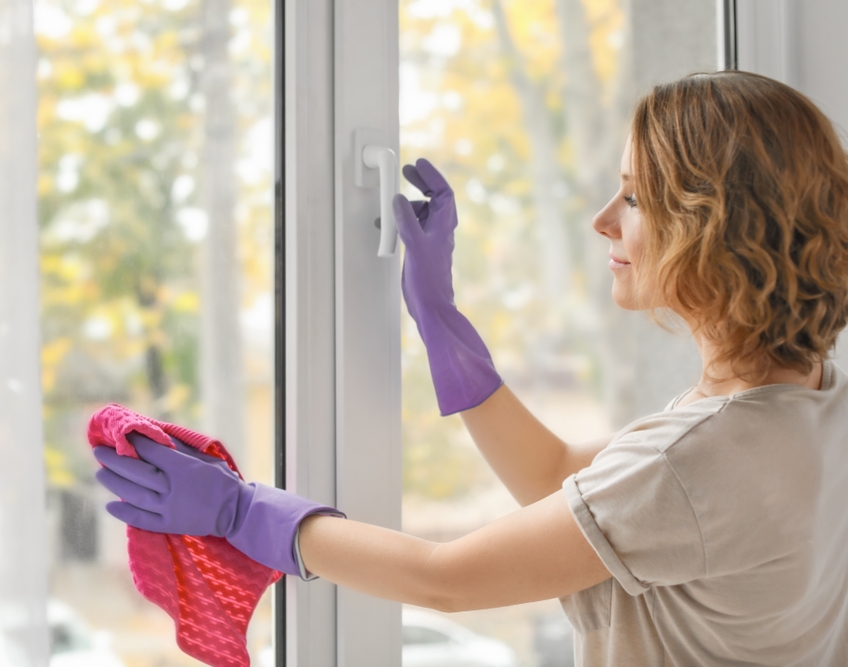
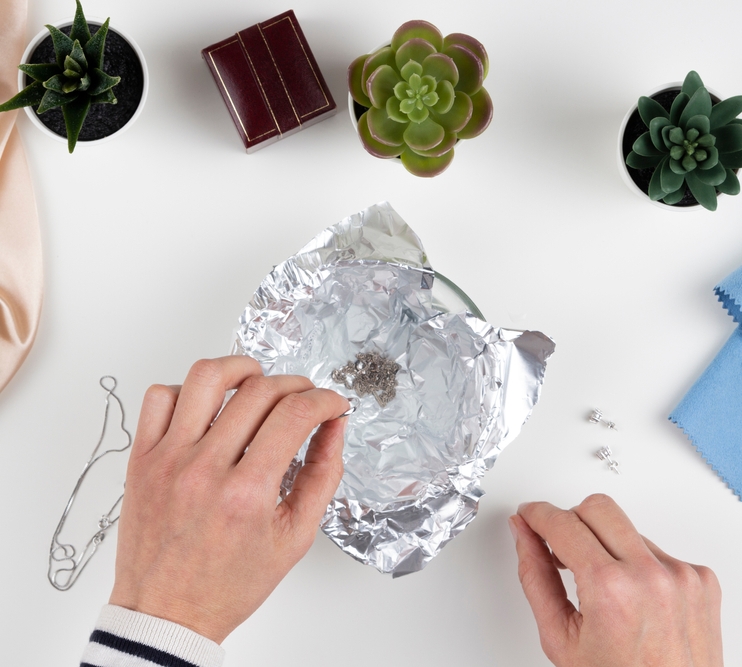
Clean your silver without harsh chemical liquids and pastes.
Cleaning silver is accomplished very easily and quickly using baking soda and aluminum foil, which causes a reaction where the black tarnish (silver sulfide) transfers to the aluminum in the foil. No elbow grease is required, and the process takes only a few minutes. When we tried this at home, our silver came out shinier than it has been since it was purchased, with no chemical residue. Use a pot or bowl big enough to hold whatever you are cleaning. Line the pot with aluminum foil, shiny side up. Place the items to be cleaned in the pot. Sprinkle all items with baking soda. Pour boiling water into the pot, enough to cover everything. If you need to move the silver around to ensure coverage, use a plastic or wooden spoon or tongs, rather than metal. Rinse the silver well, and buff to a gleaming shine. A couple of additional benefits of this method: Places we could never reach with the commercial liquids or pastes are finally clean. And as the silver loses its shine between treatments, the soft, rosy glow of the silver is much prettier than the previous blackened tarnishing.
A COVID-era bonus: use masks and lemons to clean your toilet.
Soon, with God’s help, this terrible pandemic will be history. You paid money for all those disposable masks, but you don’t need to throw them away. Instead, follow these simple steps to repurpose them into a chemical-free method for cleaning scale from your toilet tank and bowl. The citric acid helps to clean the bowl and tank with every flush, and adds a pleasant, environmentally-safe scent to the room. Cut one end off of the mask. Remove the stretchy elastic ear band and set it aside. Cut up a lemon. (Half a lemon, quartered, is all you will need for each toilet.) Open the pocket in the cut mask, and fill it with the cut-up pieces of lemon. Close the bag and twist it; then tie the elastic band tightly around the open end and knot it. Hang the bag of lemons inside the water tank by hooking the elastic loop around the fill valve.
Life is expensive enough. And what we put into the air we breathe in our homes can affect our health as adversely as any bad food we ingest. When there are options, natural and inexpensive are always the best choices. Our grandmothers knew what they were talking about!
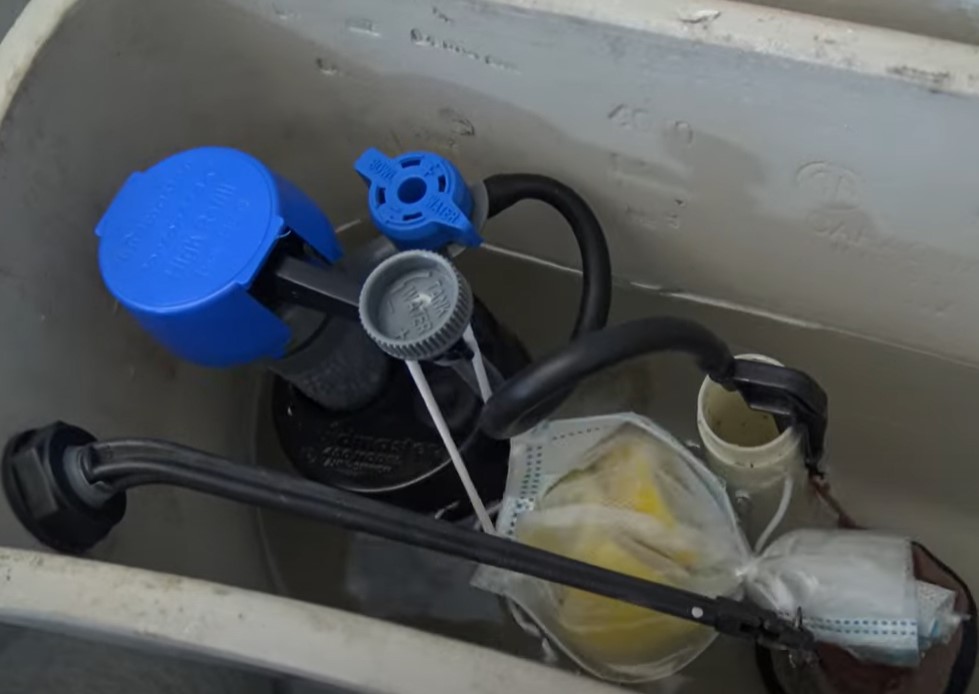
Special Thanks
To Robin Stamler, Rahel Jaskow, Tova Chava, Rochel Stoklasa, Judy Dorevitch Simon, Miryam Levine, and Hanna Tova Glicksman for your wise advice.
Do you have a tip for a natural cleaning product? Send your recommendations to Ruti’s Remedies at rutimizrachi@gmail.com. If we use your suggestion, your name will appear at the end of the article.
Related Articles
Related
Easing Our Stress By Simplifying Our Lives
Information overload. The stress piles on and the mountain of work seems insurmountable. We live in times of exciting inventions and technological developments that are supposed to make our lives easier while more productive. However, many people feel that they are...
Ruti’s Remedies: It’s Never Too Late
Ruti's Remedies Dear Ruti, In last month’s response [February: 8 Keys to Healthy Communication with Your Kids], you made a comment that it’s never too late to build the bridge of a safe place for communication with your children. With all due respect, I challenge...
Ethics and Morals in Fundraising
At the end of December, something strange happened – well, perhaps not so strange since it happens every year. A lopsided amount of money was given to tzedakah; indeed, 20-25% of all charitable giving is "year-end", with 10% alone on the last two days of the year! We...
